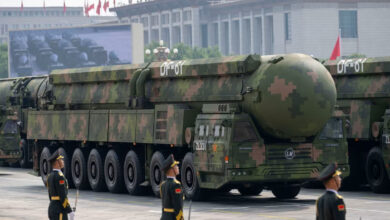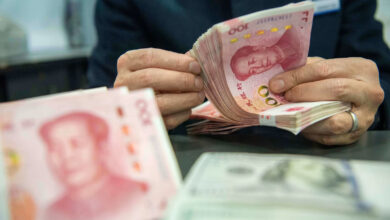Egypt this week announced it will not attend the Nobel Peace Prize ceremony in Oslo on Friday in an indirect message to the US that its opposes Washington's interference in its internal affairs, analysts say.
The Nobel Prize committee will honor Chinese dissident Liu Xiaob.
Xiaobo is considered a subversive criminal by the Chinese government. Beijing has sent letters to foreign ministries urging them not to take part in the ceremony, warning of "consequences" for those who support the activist that is currently serving an 11-year jail sentence for human rights advocacy.
China also put trade talks with Norway on hold because of its selection.
Egypt joins another 18 countries that declined invitations to attend the ceremony, according to the prize committee.
The other countries include Afghanistan, Cuba, Iran, Iraq, Russia, Saudi Arabia, Serbia, Sudan, Tunisia and Venezuela. Many of the absentees are either trading partners or otherwise allied with China. Meanwhile, 44 embassies have said they will attend the ceremony.
Political commentator Ammar Ali Hassan told Al-Masry Al-Youm that it was predictable that Egypt would decline the committee's invitation to attend Xiaobo's ceremony.
"Cairo is highly infuriated by what it calls the systematic unacceptable intervention in Egyptian issues regarded as matters of sovereignty, such as the negative American comments about the status of religious minorities in Egypt and recently the American comments about the elections," said Hassan.
Last month, the US State Department released its annual International Religious Freedom Report which leveled severe criticism on President Hosni Mubarak's regime for its poor performance in respecting religious freedom.
The report said that Christians and Bahais "face personal and collective discrimination, especially in government employment and their ability to build, renovate, and repair places of worship."
Egypt rejected the report, saying Washington does not have the right to evaluate religious freedoms in the Muslim-dominated country.
Moreover, Washington expressed last week its disappointment over how Egypt's elections were carried out and called reports of numerous irregularities "worrying."
Cairo later accused Washington of meddling in its affairs, saying "The latest positions taken by the administration toward internal Egyptian affairs is something that is absolutely unacceptable," according to a foreign ministry statement.
For such reasons, Egypt is seizing this opportunity to align itself with China against the US, according to Hassan.
"In recent years, Egypt has worked on advancing its relations with China. [This is] a strategy that seeks to diversify Egypt's international cooperation and not to depend only on the United States," said Hassan.
Beijing said granting Xiaobo the internationally acclaimed prize is an affront to its "legal sovereignty." Egypt shares the same point of view with Beijing in that it opposes Western efforts to support opposition figures domestically.
"Moreover, Egypt's refusal to attend the ceremony is also an indirect message for (Mohamed) ElBaradei that Egypt is not taking the prize and its symbolic importance so seriously," said Hassan. ElBaradei, the former UN nuclear chief and Nobel peace laureate, has called for reform and is considered a potential 2011 presidential candidate.
On Sunday, ElBaradei, who returned to Cairo after a several-week visit to Vienna, said he will tour a number of governorates where he plans to meet with National Association for Change (NAC) members.
ElBaradei on Monday told the German Der Spiegel the "next parliament will be dominated by the president's party. It will function like the Duma in Moscow during the darkest days of the Soviet era. As a consequence, the opposition will close ranks even further."
Amnesty International on Tuesday accused Beijing of pressurizing smaller countries to boycott the ceremony.
“China has been arm-twisting behind the scenes to stop governments from attending the Nobel Prize ceremony, using a combination of political pressure and economic blackmail," reads the Amnesty's press release.
“The fact that, despite the pressure and threats, the Chinese could only cajole a small minority of countries, reflects the unacceptable nature of their demands," the release adds. "Governments and international institutions must continue to resist this type of bullying."




